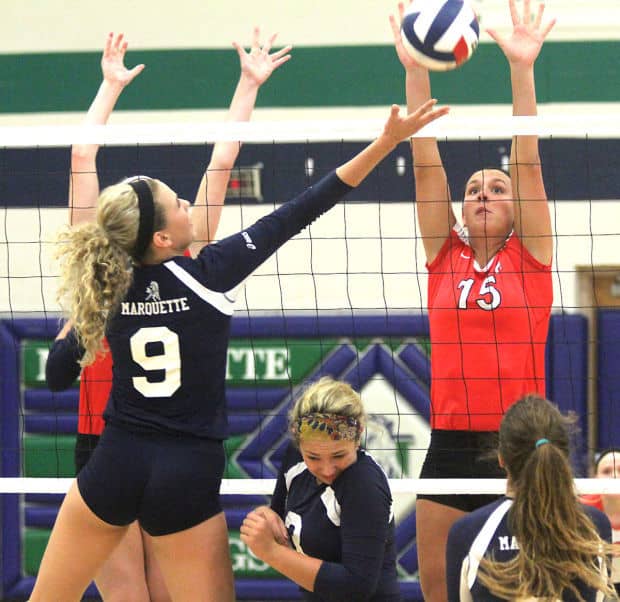
A Curious Cultural Experiment
For many reasons and convergences of fate, I recently took on the assignment of coaching high school volleyball. It was a sport I knew very little about and had the least experience coaching and playing. It was also a position to lead JV2, traditionally known as the ‘freshman team’. I was the low man on the totem pole for a program that had been unsuccessful for decades — a perfect placement for someone who preferred to work covertly.
Far removed from sporting culture, I wondered what customs and systems were in place. I had no particular interest or affiliation with the game of volleyball. I viewed it as any other game, and was certain it aligned to the generalizations that linked all other games: space, skill, and the manipulation of bodies. I had no picture in my mind what it should look like, and did my darndest to stay objective in my assessment of what it was.
Though they were the same kids from the same school that composed my PE classes, the “I play sports” persona is wildly different from the character that quietly states “I move my body”. They wanted an identifiable thing to be a part of. They wanted the ‘stuff’ that came with being a student-athlete. Doing more meant access to more, and they fully expected to take advantage of these perks.
Advantage 1: Being able to see the athletic trainer
Kids prefer saran wrapping a bag of ice to their back to learning how to make their back feel better. They don’t know how to feel a little, only big and only the bad, painful stuff. It makes them feel as if they’re doing things right. They look like they’ve put in some hard work. The badge of the athlete is to wear a brace, get taped, and keep going, whereas a common place person might suggest they look into changing direction.
Advantage 2: Getting out of school to travel
Man do kids love riding the bus. It’s a social-party mobile, complete with built-in friendship compartments. It gave them time to be with each other, without having to be scaled on performance. Being excused from a class period or two was icing on the cake.
Advantage 3: Having something to do
There is a space and a time and a group of people that will come together to achieve a common goal and share in a common interest. It gets them off their phone and out of their typical environment and tends to please pushy Moms who want their kids to do more and be exceptional.
Advantage 4: Hired problem solver
Whether someone was struggling with their serve or their spike footwork, the job of the coach is to correct errors. It is also to dispel conflicts and settle personal gripes between players. With such an accessible problem solver, few choose to build the skills of identifying, avoiding, and/or solving issues on their own.
Advantage 5: Public events that parents/peers can attend and watch
The epitome of ‘look what I can do.’ It is a celebration of the athletic identity, and the decision made and persistence it takes to stick with it. Players can feel supported and parents can feel involved; a win-win that granted the truest wishes from both sides.
All of the above lends itself to the belief that the life of the athlete is better than the life of the non-athlete. It extends the notion that you deserve something for doing more than is required. But if you re-frame the ‘extra’ as a willing commitment to do what you like, it forms less of a sense of entitlement. It becomes a privilege; not one of ability but of matching interest and mutual need.
Advantage, entitlement, privilege — all words that convey you get to do things others cannot or will not, for better or for worse. Perception is everything. If you feel like your extra effort is a means of earning (more playing time, special treatment), you will always feel like you are owed. If your extra effort is viewed as a form of spending (time, energy) you will realize you keep investing in a desired product.
With all its clout and reverence, effort is not the end all and be all in competitive sport. Performance is. Losses and repeated mistakes have a rooted cause in a lack of knowledge, execution, and/or attention. The job is to pinpoint the physical or psycho-social error and make it an instructional point. Consistently telling your team that they got beat because they got ‘outworked’ isn’t helpful. Neither is a follow up practice of conditioning. Punishment can help remove a negative behavior but it doesn’t simultaneously instill a positive one.
Caring, is seems, stays heavily within the social realm. Like me. Tell me I’m good. Don’t disappoint. Coaches, too, are enamored with this type of validation. It’s almost as if these players who long to be loved socially, possibly through this game, grew up, and then try to love themselves back exorbitantly in this way.
No one would ever mistake our practice for a party. Celebrating and pausing for fun during development only logically happens after a few victories, right? But what if those wins didn’t come? Do we concede to staying put where we are and simply enjoy ourselves and our time together?
To me, coaching and teaching are the same thing. A learning environment cannot be riddled with distraction to be effective. There is a task at hand and a purpose to that task that directly relates to performance. The thread between all is spoken and repeated.
Not all the girls sought to get better at volleyball. (Note that it was not listed as one of the five advantages). They sought to use volleyball to have a good time. And most of their friends were in the other gym. The blow to their social ego was compounded by practices that damaged their athletic ego. The reality they lived in was not the one they hoped it would be. Acting in accordance with what one wishes to be perceived as is a struggle for many in this world. Most are just trying to survive.
We ended our season 11-5. JV went 3-13 and varsity 1-15. To the outside, our success didn’t mean much. Performance was never the marker of prestige. The fact that we were not like them never won any popularity contests. We existed separate, which was a hard pill for a lot of the girls to swallow.
I take full responsibility for this distancing. I declined their shirts and jackets. I didn’t sit on the varsity bench with the other coaches during their game. I had no aspiration to be or do as they were or did. Making different work is kinda my thing, but results are subjective (depending on what you’re looking for and/or trying to create).
I knew a month in to my two-month contract this would be a one season experiment. The ego, identity, and behavior of athletes is abnormal. I lived it long ago. It is not something I want to return to, nor a culture I want to take on. But my stint coaching JV2 Volleyball served as an excellent reminder of what exists, and how it has evolved into something more rigid and homogenous than I remember. Instead, I will stick with those who simply want to be more of themselves, and understand there is no one thing that can take them there.



